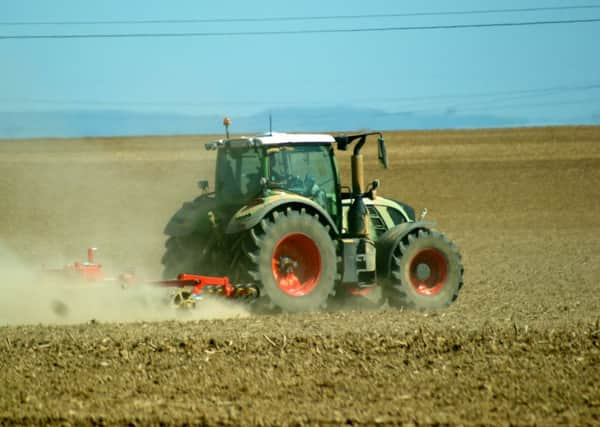A '˜no deal' Brexit could severely harm UK farming


Analysis carried out by the organisation indicates that, under such circumstances, the EU will apply its existing tariffs to imports coming from the UK.
WTO rules mean it could do no less.
So, for example, lamb exporters to the EU would face a tariff of around 67%, whilst beef is around 85%.
Advertisement
Hide AdAdvertisement
Hide AdBearing in mind that the UK imports around 40% of its food requirements, the NFU believes that the UK government, in the event of no deal, will need to adopt some hastily applied stopgap measures to secure food supplies and to maintain price equilibrium for consumers.
One of the ways being considered by the government is to unilaterally lower the applied tariffs for food coming in to the UK.
The NFU modelled the impact of reducing import tariffs for product coming in from countries around the world back in 2016 and found that it would cause severe damage to indigenous farming businesses as a result of being undercut by food produced to different standards and in much more competitive regulatory environment than EU farmers face.
The NFU also points out that ‘Rules of Origin’ will be a critically important factor within this possible scenario moving forward.
Advertisement
Hide AdAdvertisement
Hide AdThese are essentially the criteria used to define where a product was made and therefore whether it is entitled to any trade concessions.
But identifying the origin of a product is not as simple as it sounds.
A product could be assembled in one country, but its component parts could have originated from many different countries.
Establishing the economic origin allows customs authorities to apply the right tariff and treatment for that product at the border.
Advertisement
Hide AdAdvertisement
Hide AdBeing part of the EU Customs Union removes the need for UK exporters to prove the origin of the good when selling to other EU countries.
Leaving the customs union means that UK exporters will need to be able to prove to EU customs officials where anything we trade with the EU has originated leading to increased friction and cost at the border.
The NFU has indicated that it will do all it can in the remaining months ahead of Brexit to ensure that negotiators are able to secure a deal that maintains free and frictionless trade with the EU and therefore avoids having to revert to WTO rules and the difficulties such an approach would create.